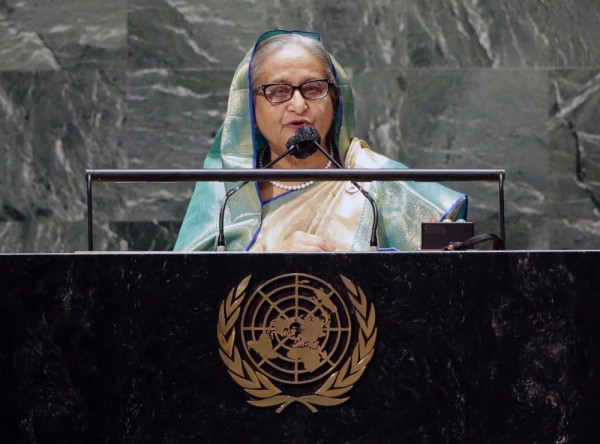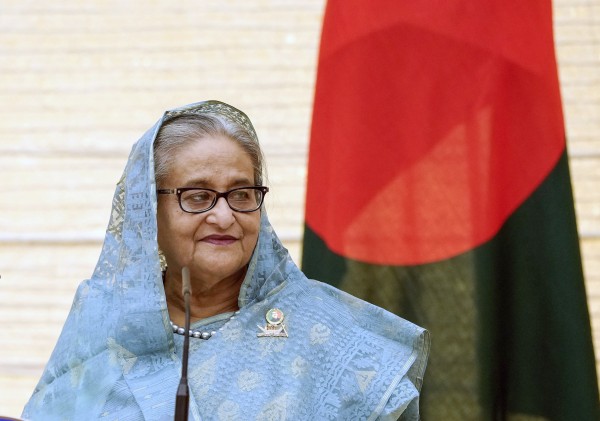The IPI global network today published an open letter to Prime Minister Sheikh Hasina expressing our concerns about the state of media freedom in Bangladesh. We urge her government to take immediate and concrete action to protect press freedom and ensure that the citizens of Bangladesh can exercise their fundamental right to receive diverse, independent news and information.
The letter highlights some of the key challenges journalists in Bangladesh face in being able to carry out their work freely and safely, based on more than a year of close monitoring by IPI as part of our ongoing work to support press freedom and independent journalism in the country and across South Asia. It also includes a series of concrete recommendations for improving the environment for press freedom in Bangladesh and for ensuring the public has access to diverse, independent news and information.
The letter can be read in full below or downloaded here.
—
31 May 2023
Your Excellency Sheikh Hasina, Prime Minister of Bangladesh,
As the global network of editors and journalists dedicated to promoting media freedom and independent journalism, the International Press Institute (IPI) is deeply alarmed by the declining state of press freedom in Bangladesh.
We call on your government to take immediate and concrete action to strengthen protections for independent media and ensure the citizens of Bangladesh can exercise their fundamental right to receive diverse, independent news and information.
The ability of journalists to report on matters of public interest is essential to free, open, and democratic societies. Governments are responsible under international law for ensuring that journalists can work freely and safely and for guaranteeing the free flow of information and ideas.
IPI has been closely monitoring the environment for press freedom in Bangladesh as part of our efforts to support independent journalism in the country and across South Asia. Our monitoring shows that journalists are under significant pressure, and routinely face intimidation, physical and verbal attacks, and arrests, and are often restricted or punished by draconian laws that limit freedom of the press and access to information rights.
IPI has documented at least 72 press freedom threats or violations over the past year, which includes both legal and physical attacks against journalists. Our monitoring also shows that a majority of these incidents and violations were committed by state authorities, which include law enforcement and judicial authorities, precisely the public officials and institutions that are responsible for safeguarding fundamental human rights and the rule of law.
We highlight:
- An alarming increase in the weaponization of the law by public authorities to punish and censor critical press. We are especially concerned by your government’s continued abuse of the Digital Security Act (DSA) to silence independent media and journalists in retaliation for reporting critical news.
- A pattern of targeted harassment of critical journalists and independent media, including the Prothom Alo newspaper and its staff journalist Rozina Islam.
- Physical attacks against journalists, often with impunity. Over the past year, at least 3 journalists have been killed in connection with their work, and IPI has documented at least 45 documented cases of physical, verbal, or online attacks against journalists. We also documented a wave of violence against journalists while reporting on the news or at political rallies ahead of Bangladesh’s 2023 parliamentary elections.
The Constitution of the People’s Republic of Bangladesh formally guarantees all citizens the right to freedom of speech and expression and the freedom of the press. Yet additional laws, in particular the Digital Security Act, restrict these rights and weaken the media’s right to operate freely and independently.
We emphasize that under international law states have a positive obligation to protect the fundamental rights to freedom of expression and information, which includes the right of journalists to work freely, safely, and independently. Any interference with these rights should be prescribed by law and must be necessary, legitimate, and for a narrowly defined purpose.
Moreover, under international law and other agreements, states must investigate attacks on journalists promptly, thoroughly, and independently, and prosecute those responsible. Our work and research have shown that failure by states to investigate such crimes often leads to increased violence.
We therefore call on your government to:
- Cease “lawfare” against the press. The government should immediately cease its abuse of the law to punish and harass journalists and independent media in Bangladesh. The weaponization of law to target journalists undermines domestic guarantees for press freedom and threatens the foundations of international human rights principles and frameworks.
- Review all criminal laws affecting freedom of the press to ensure alignment with domestic and international protections for media freedom, and repeal provisions that do not align with these principles and commitments. The government must ensure that all policies and practices affecting the media align with international human rights and freedom of expression principles and standards, and do not violate or restrict the Bangladeshi public’s right to diverse, independent information.
- Cease targeted harassment of the Prothom Alo newspaper, including dropping all charges against Rozina Islam.
- Commit to protecting journalists’ safety and ensure all crimes against journalists and media workers are investigated transparently and independently, in line with international obligations and standards, and that those responsible are held to account. The government should take concrete steps to improve accountability for all reported cases of violence or intimidation of the press and human rights defenders, including by establishing clear and transparent procedures and mechanisms for investigating all reported attacks. This includes ratifying the International Convention for the Protection of All Persons from Enforced Disappearance, which is an essential step in strengthening national-level commitments regarding the safety of journalists.
The need for quality, public-interest journalism in Bangladesh and around the world has never been greater. IPI stands ready to discuss our concerns and our recommendations for strengthening the environment for media freedom in Bangladesh and for ensuring that independent journalism can fulfill its critical public function of helping foster a more democratic, informed, and equitable society.


